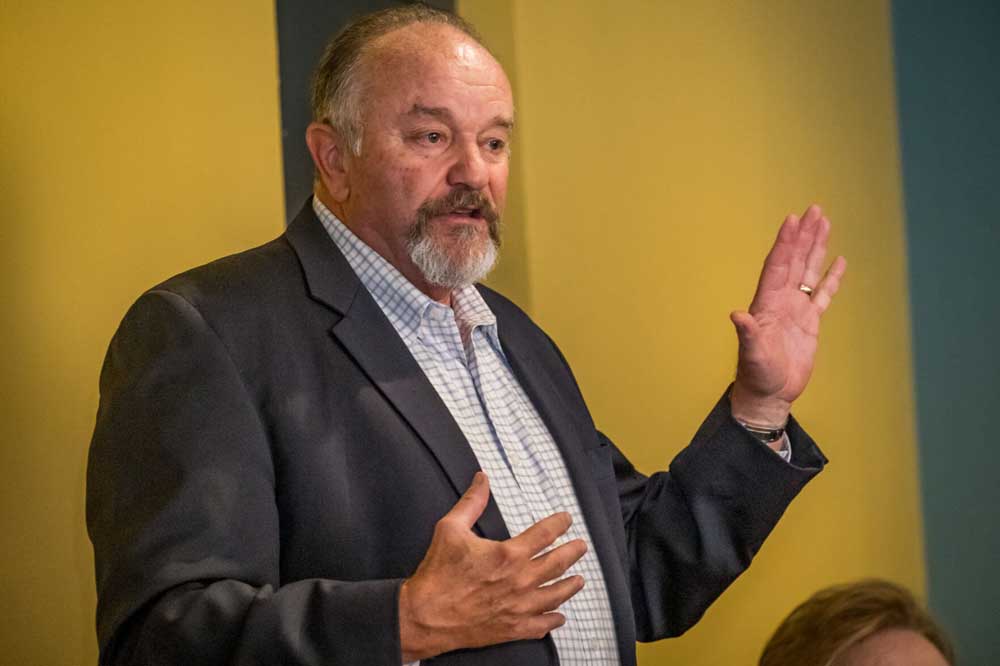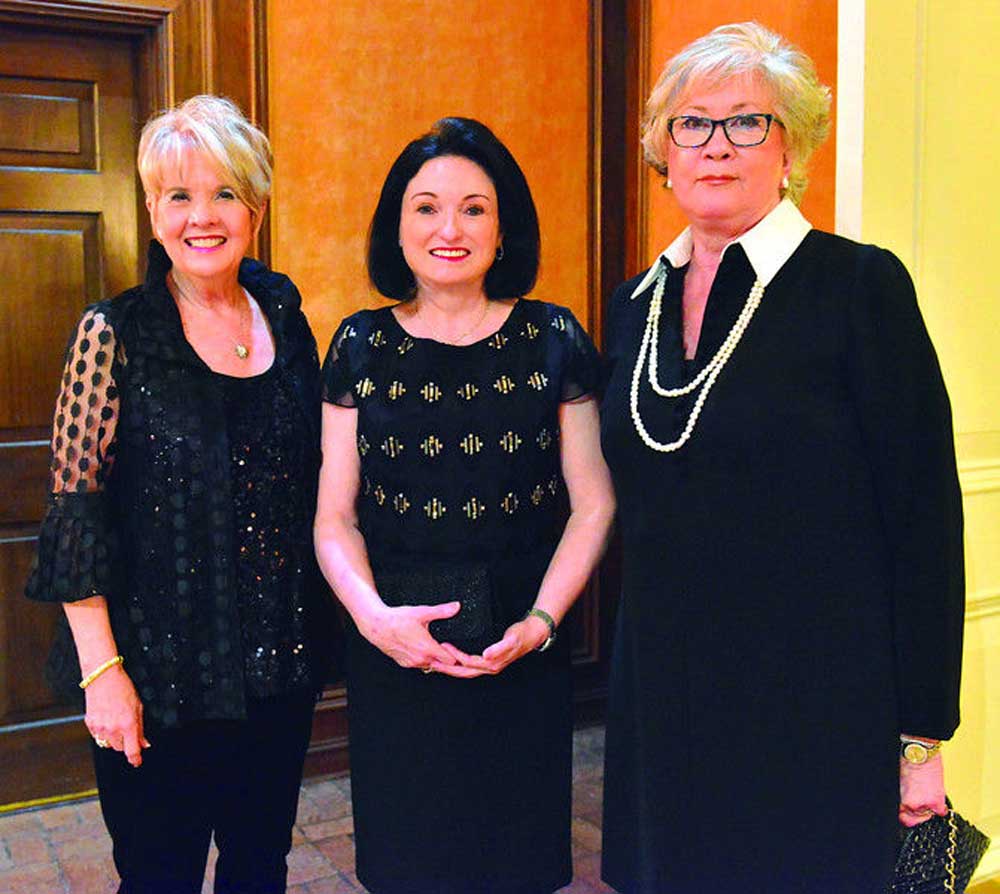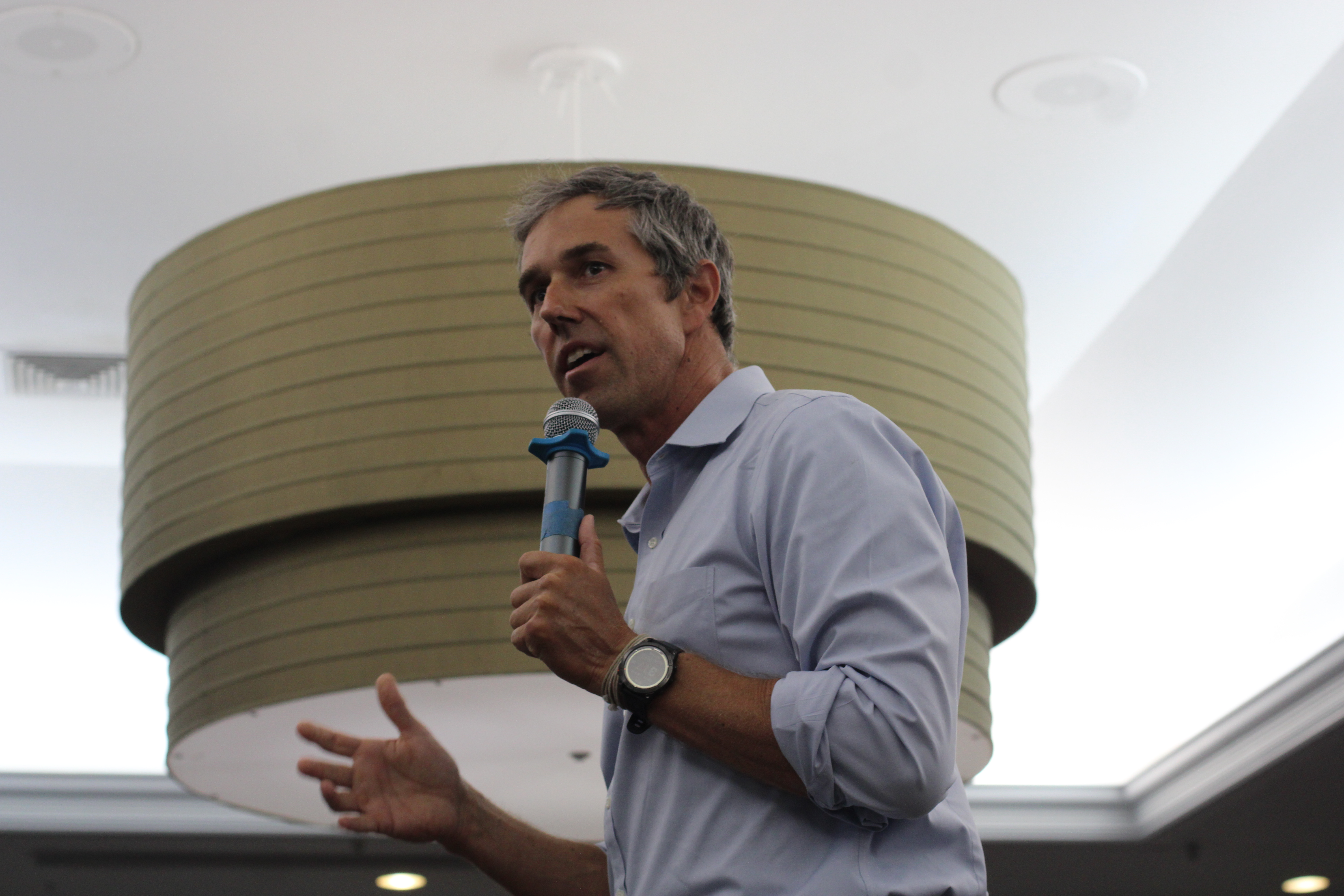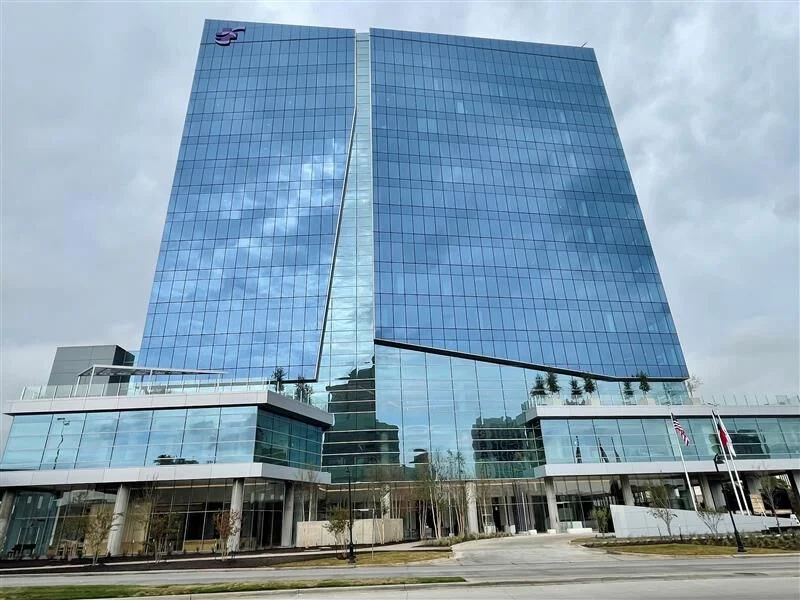‘Not going well for Russia’: Retired four-star Air Force general, ex-NATO commander talks Ukraine war
Published 5:45 am Friday, November 1, 2024

- Philip Breedlove, retired four-star general in the U.S. Air Force who also was the Supreme Allied Commander of NATO Allied Command Operations, speaks in November 2023 in Longview. (Les Hassell/Longview News-Journal File Photo)
Before the Texas-Ukraine Energy Symposium commenced this week, Ukrainian delegates and city of Longview officials were addressed by retired four-star Air Force Gen. Philip Breedlove during a Tuesday dinner at Pinecrest Country Club.
As the Supreme Allied Commander of NATO Allied Command Operations from 2013-16, Breedlove occupied the highest military position on the continent and guided Western military policy during Russia’s annexation of Crimea in 2014.
Since his formal retirement and Russia’s invasion of Ukraine in 2022, Breedlove has emerged as an outspoken advocate for sending Ukraine more lethal and longer range weapons, while criticizing the Biden administration’s reluctance to allow U.S weapons to strike within Russian territory.
Breedlove sat down with the News-Journal for a discussion about the current state of the war, the risk of escalation and a nuclear exchange, and, with the conflict becoming a domestic campaign issue, how the U.S. presidential election could affect military aid to Ukraine.
This interview has been edited for length and clarity:
News-Journal: The upcoming presidential election is something of a referendum on military aid to Ukraine, which you’ve been a strong proponent for. If you were talking to a voter skeptical about continuing aid, how would you make a case to them that supporting Ukraine is both in America’s interest, and theirs?
Philip Breedlove: There is this impression out there that we are, quote, unquote “giving money to Ukraine.” Very, very little money is being given to Ukraine. I’ll quote someone else’s figure, a governmental figure. About 92% of the money that is being given to Ukraine is actually going to U.S. companies. What happens is just like the first set of 120 plus ATACMS missiles we sent them. Well, those were out of date. We were going to have to pay money to get rid of them. We gave them to Ukraine, and then the money that’s being given to Ukraine then goes into an American company to replace those weapons in our inventory.
And so there is this great misconception, because in a previous administration, we literally sent pallets of cash to Iran. That is not what’s happening in Ukraine. The money that is being given to Ukraine is actually replacing stuff that we’re giving to Ukraine out of our military stockpiles.
We did send a little cash to Ukraine in the very first part of the war, because Mr. Putin was trying to run their currency to zero, which would have collapsed the government. So we sent some straight up money to stabilize their currency and their banking system. But since that time, the vast majority of the “money that is given to Ukraine” is actually going to American companies that are replacing things in our military that we are giving to them out of the excess of our capability.
LNJ: Do you think a Trump administration would make true on its campaign promises to cut Ukraine aid, or is that campaign bluster?
PB: I don’t like to do politics, but here’s what is factual. Before the first Trump administration, there were some very strong pronouncements about what he was going to do with NATO, what he was going to do with the allies.
One of the promises was he was going to pull troops out of Germany, etc, etc. What actually happened during his administration is the number of American troops in NATO grew, the investment in NATO grew, and our support of NATO initiatives held steady or grew. So I don’t pretend to know what a President Trump will do this time around, but I will tell you that there was a lot of doom and gloom because of his tough language before his last presidency, and in his presidency, our presence, our investment and our exercises in Europe and in NATO increased.
LNJ: North Korean troops are massing in Russia’s Kursk region where Ukrainian troops have lodged themselves since August. What does the arrival of North Korean soldiers mean for the Kursk Offensive and the geopolitics of the war?
PB: This war is not going well for Russia. If you read the papers, they’re advancing little by little in the Donbas, but they are losing numbers at a fierce rate, a rate that our nation would never stand for. The conservative numbers have their losses at 600,000. The less conservative number is up around 650,000, and that’s about 200,000 to 210,000 dead, and the rest injured so badly they’ll never return to fight.
And so the Russian ranks are thinning in these areas. And so how does Mr. Putin solve that? He knows that if he goes to another mobilization in his country, he’ll have to do it in the big cities, because he’s been doing it east of the Urals and the small cities. That’s going to be a real political problem for him. So he’s trying to avoid a big mobilization. So what does he do? He’s getting North Korea to come fill the holes. And I think that seeing North Korea coming into this fight tells us a lot about what’s going on in the Russian army.
Now, geopolitically, geo strategically, this is a big deal. I mean, Russia has been using North Korean ammunition, Iranian ammunition. China has been contributing some very important parts to certain things. So Russia has been using all these countries to help them fight, and now to actually have them contributing troops on the battlefield, that’s a big change, that’s geopolitically important.
I think the dynamic you should be asking about is, how is China going to react? China has always considered itself the big brother to North Korea, and now North Korea and Russia are starting to do more collusion among themselves. And what we should be asking is: What’s North Korea’s quid-pro-quo? What is North Korea getting from Russia? Missile technology and nuclear missile technology.
LNJ: You’ve advocated for unshackling the delivery and use of longer range U.S. weapons capable of striking within Russia, something the Biden administration has been reluctant to allow despite Kyiv’s increasingly urgent pleas. There is a strong concern among Biden administration officials that Russia could use nuclear weapons if the U.S. crosses that line. Is a nuclear retaliation an acceptable risk for providing weapons which could change the balance of the war?
PB: As I mentioned before, things are not going well for Russia right now, but let’s acknowledge what is going well for Mr. Putin. His war of intimidation is succeeding wildly. The West has limited almost everything that they do in relation to Russia because Mr. Putin threatens nuclear escalation.
Our policy has been almost completely hamstrung by this fear that Mr. Putin will use nuclear weapons. And so what does he remind us of on an almost weekly basis? “We’re sending nukes into Belarus. We’re going to change our targeting on nukes. We’re dropping out of this nuclear weapons regime.” Every week it’s “nukes, nukes, nukes,” because that’s how he knows he keeps the White House in a box.
So every night, all the time, weapons from three different countries are firing from 300 degrees into Ukraine, but we tell Ukraine, “you can’t fire back.” That is about the dumbest thing I’ve ever heard. This is a bad policy, and it’s because we are intimidated.
LNJ: On the other hand, Putin is in possession of a large nuclear arsenal and violated international norms before. Biden has said Putin’s nuclear threats are “real.” Is there ever a time to heed the risk of a nuclear attack?
PB: There are no, no-risk solutions. There are zero, no-risk solutions. Kennedy faced it. Reagan faced it, we are facing it, but reacting in a different way than Kennedy and Reagan did. This is the way international military affairs work.
But, you should always be prudent if you think the other guy’s going to use what he has.
LNJ: Putin strikes many people as a volatile leader. You don’t think he would use a nuclear weapon if he felt in danger of losing the war?
PB: The real question you have to ask now is, if he commanded it, would his people do it? Remember that the people right below him are all kleptocrats. All of those people who have to execute his orders are kleptocrats. He’s slowly destroying the nation that they take their money from.
Right now, we are giving Ukraine enough assistance that they will not lose. But on purpose, we are not giving them what they need to win, because we are unable to morally and intellectually come to grips with the fact that there is no, no-risk answer.
LNJ: Despite Ukraine’s successful liberation of city’s like Kherson earlier in the war, Russia has continued to regain ground in the east as Ukraine struggles with a manpower shortage. The human toll for both countries has been staggering and Putin’s regime has proven more resilient than analysts predicted at the onset of the war. At what point would you consider a peace deal as the best course of action for Ukraine? What would cause you to broach that topic with a Ukrainian colleague?
PB: This is a huge conversation now because of some of the rhetoric that Trump has used in his campaign. Peace deal … I’m not sure peace is the word I would use.
Let’s consider the following: in 2008, Russia amassed its army, marched across an internationally recognized border, invaded and occupied 20% of the nation of Georgia, and they’re still there. In 2014, Russia amassed its army, marched across an internationally recognized border and occupied 12% of the most important commercial parts of Ukraine, specifically the port of Mariupol and the port of Sevastopol. And so in 2008, the West’s response was inadequate to task, and Russia was rewarded for bad behavior. In 2014, the West’s response was inadequate to task, and Russia was rewarded for bad behavior. Now in 2024, there’s talk of a peace deal. There’s no peace.
If we stop now and say we’re having peace, they’ll be back in ‘25 or ‘26, whenever it is. They can reconstitute their army. This is just like raising children. If you keep rewarding bad behavior, you’re not going to get good behavior in the future. If we freeze where we are now, and Russia is — for the third time — rewarded for invading one of its neighbors, we’re going to get a fourth time, and we’re going to get a fifth time, as long as we’re backing up because of the nuclear threat.
Russia tells you what they’re going to do. This is way bigger than Ukraine. They’re in a march to essentially recreate the Soviet Union and the Warsaw Pact.
LNJ: I think we can also acknowledge that Russia’s military isn’t capable of reclaiming all of Ukraine, much less the former Soviet Union, and Ukraine’s capacity to take back territory is limited with the manpower it has available. Relatively little ground is being made by either side, even as the death toll rises.
PB: I agree with you. I don’t think Russia’s capable, but we’re going to hand it to them. If we have a peace deal right now, and we reward them a third time by giving them all of the land that they have taken now in Ukraine, do you think they’re done?
And I would say that Ukraine has the ability if the West gave them the tools they needed. Way above 90% of the Ukrainian people say, “All Russians, out of all of Ukraine, including Crimea.” I think that even if we shut off their aid, Ukraine will not stop fighting.







